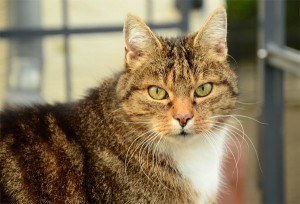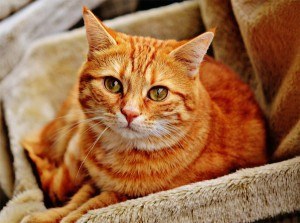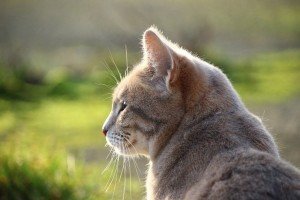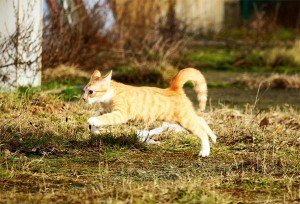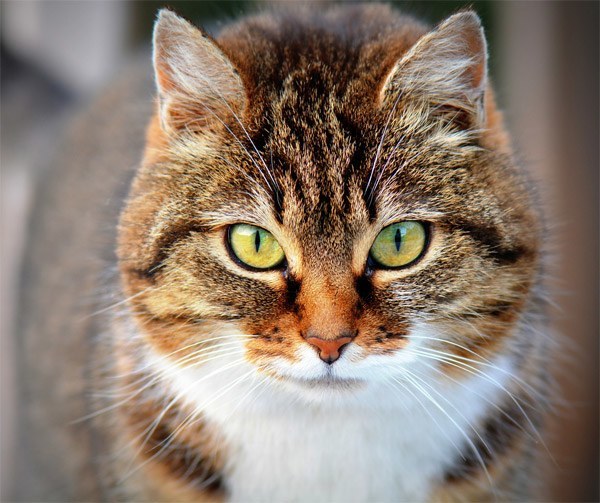
Caring for Senior Cats – What to Know
Caring for senior cats – What to know
It is a wonderful fact that cats are now living longer than ever. But as cats age, they become susceptible to particular health issues, and will require changes in the way you care for them. It is important to learn about these issues, as it is typically much easier and affordable to treat problems early on. In this article, you will learn when a cat is considered a “senior,” common health issues for aging cats, and proactive steps you can take right now to enhance and extend the life of your faithful companion!
Is my cat a senior?
The short answer is your cat is probably a senior at 10 years old. The long answer is that it’s complicated; different cats age at different rates. Factors like genetics, diet, weight, exercise and environment can all contribute to when your cat starts to possess senior traits.
Common health issues
Cats are notoriously good at hiding health problems, which can make it difficult for pet owners to notice when something’s wrong. One of the best things you can do for your cat is to educate yourself about common health issues and watch for any deviations from your cat’s normal behavior. This, in tandem with regular wellness screenings with us, is incredibly powerful for your cat’s health and well-being. We can’t stress enough how important it is to catch these problems early!
Below, you’ll learn about some of the most common health conditions in senior cats, along with the changes in behavior and symptoms to look out for.
Chronic Renal (Kidney) Disease
Common symptoms: Cats usually show no symptoms until stage 3 or 4 of the disease, when the kidneys are operating at less than 25% of their usual capacity. The earliest signs you will notice will be excessive thirst and urination. Once the disease is advanced, common symptoms are vomiting, loss of appetite, weight loss, depression, dehydration, diarrhea and mouth sores.
Chronic Renal Disease is common in aging cats, and is always very serious. The kidneys’ most important job is to filter waste from the blood. When they begin to lose their ability to do this, waste products can begin to build to dangerous levels in your cat’s bloodstream, causing a health emergency. Chronic kidney disease usually happens over the course of months or years, and can ultimately damage the kidneys so severely that they can’t function.
Treatment: The appropriate treatment of kidney disease depends on the stage the disease has been caught at. If we catch it early (like stage 1 or 2), it is much easier to slow its progression by treating the underlying cause of the condition, meaning your cat will have an excellent prognosis. Beyond the early stages, we will make specialized changes to your cat’s diet, and monitor for infections. With proper veterinary treatment, even cats with very limited amounts of kidney function can still survive for a long time.
The 4 stages of chronic renal disease:
Stage 1 occurs when waste filtering slows and waste begins to appear in the blood. There are no easily visible signs, and the only way to diagnose is usually through a laboratory test.
Stage 2 occurs when there is a further slowing of waste filtration and an imbalance of water in urine. Some cats will exhibit increased urination.
Stage 3 occurs when kidney filtration becomes seriously impaired – often at less than 60% of normal capacity. You will commonly see excessive thirst and urination in cats.
Stage 4 occurs when kidneys work at less than 25% of normal capacity and the toxic buildup begins to affect organs in the body. Cats typically appear very sick at this stage.
Hyperthyroidism
Common symptoms: Weight loss, excessive appetite, shortness of breath, increased excitability, increased thirst and urination, increased fecal volume, as well as vomiting or diarrhea.
Hyperthyroidism is a very common condition in senior cats and is characterized by the increase in the production of thyroid hormones. Thyroid hormones affect nearly every organ in the body, which causes dangerous secondary problems.
Heart Problems – Thyroid hormones stimulate a faster heart rate and stronger heart contraction. This can cause some cats with untreated hyperthyroidism to experience a thickening of the left heart ventricle, which can impede the heart’s functioning and even cause congestive heart failure. Fortunately, once hyperthyroidism is treated, cardiac problems often improve.
Hypertension – Excess thyroid hormones often cause high blood pressure, which can lead to a range of secondary problems such as damage to the brain, eyes, kidneys and heart. Once the hyperthyroidism is successfully treated, these secondary conditions will usually improve, though they can often require their own unique treatment.
Treatment: There are three avenues for treatment for hyperthyroidism: radioactive iodine treatment, surgical removal of the thyroid gland, or a long-term regiment of antithyroid drugs. The treatment of your cat will depend on the unique particulars of your cat’s condition.
Diabetes Mellitus
Common symptoms: Increased thirst and urination, increased appetite and weight loss. May also develop chronic or recurrent infections. Diabetes is especially common in overweight cats.
Diabetes is caused by a deficiency of insulin or resistance to insulin, which results in improperly balanced blood sugar levels. Diabetes typically develops gradually, meaning the symptoms are usually hard to spot at first. Treating a diabetic cat is usually more about controlling (rather than curing) the disease. It is a very serious illness – there are a range of problems it can cause, and if improperly treated it can be fatal.
Treatment: The primary treatment for diabetes in cats is usually insulin therapy. If, for some reason, insulin therapy cannot be used, there are oral medications that can be used to treat diabetes. It is also usually highly recommended to switch to a special diet that is low-carbohydrate in nature.
Being Proactive
Regular Wellness Exams
Like we said, we really can’t stress enough how important it is to catch problems early on, especially for senior cats. So the most important thing to do is to make sure your cat has biannual wellness exams where we can screen for potential problems. If your senior cat hasn’t been in to see us in the last six months, please call us or request an appointment below!
Diet
Keeping your cat at a healthy weight will pay incredible dividends for your cat’s health – and your wallet! Feed your cat exactly the amount required to maintain their ideal body weight. During your next visit with our staff, consult with us on the diet that your cat would best benefit from. Different cats have different nutrient requirements, and it’s important to treat each cat with individual attention.
Environment
Make sure your senior cat doesn’t have to go far for access to food and water. Also make sure your cat has access to plenty of toys and can easily stay stimulated. Older arthritic cats especially appreciate soft bedding that is easy to get to.

